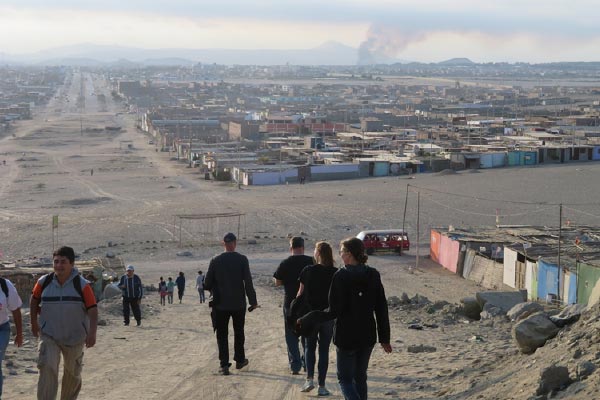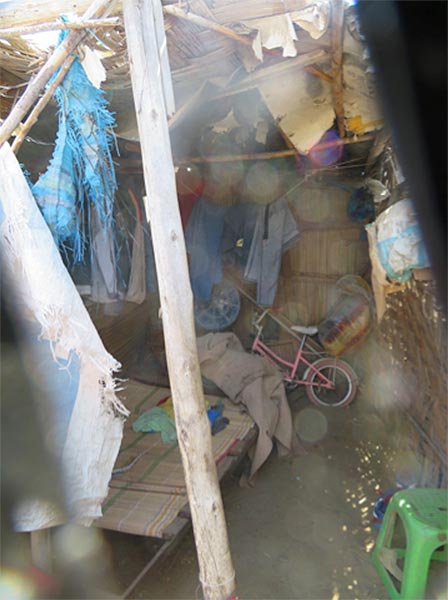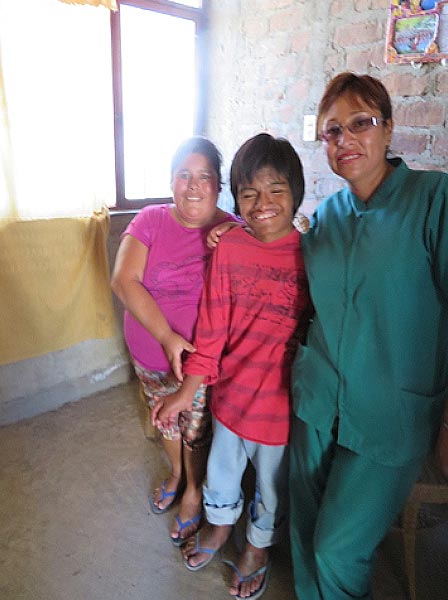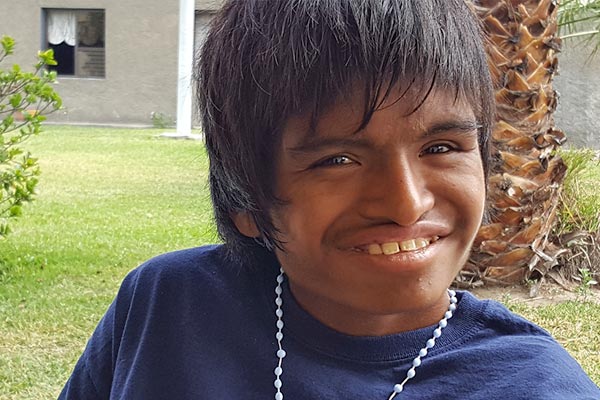Luis’ Story
A Personal Reflection on Our Chimbote Mission Experience
Deacon Tim Noca, September 1, 2016
Cardinal Donald Wuerl wrote of this in 2001 when, as Bishop of Pittsburgh, after visiting Chimbote, he said, “It was my privilege to witness the gratitude of the doctors, nurses, sisters, midwives and medical staff – a gratitude directed to the people of Pittsburgh at the blessing of the new laboratory. I witnessed it in the maternity ward where proud mothers and squealing infants found a safe, clean place with medical care and human compassion as the miracle of God’s gift of new life bursts forth all around us. I think it is safe to say that I also witness on our side of the bridge a generosity of spirit and solidarity of faith and compassion at each annual Peru Mission Dinner.”
“Building and sustaining this bridge between the church of Pittsburgh and our missionaries in Chimbote is a work of human solidarity, compassion and care. It is at the same time a work of love – the work of God.”
This past year, we had the opportunity to see a dramatic example in this work of God through the family of Luis.
Luis is a 20-year-old man with intellectual disabilities. He is someone who has been known by the staff at the center all of his life, and they have always looked in on him. Lately, it was obvious that he was being treated worse by his family who were obviously finding it more difficult to live with Luis.
Luis lives with his mom and step dad along with his younger siblings. They live in a one-bedroom house and when we arrived, we saw two double beds in that one bedroom. One for the mother and father, and another one for the brother and sister. Luis slept out back in the shed. In that shed was a bed frame with only a beach mat on it. This beach mat covered about two thirds of the bed frame and this is where Luis was to sleep.
When we arrived, Luis gave Elli a hug and began to cry. Elli showed us his makeshift bed out back and explained the circumstance to us that Luis was living in. We had the chance to take him for a walk and talk privately about the situation and agreed that we would purchase a bed for him and set it up in their home. We went back in to the home to discuss this with the mother and she was resistant. Through the conversation, she ended up saying that the step father would not like this, so with Elli leading the way, we marched off to his place of work and told him of our plan. He was resistant, but eventually said OK. That afternoon, we showed up at their house with the bed and Luis had new sandals, thanks to the generosity of one of our high school students who gave his to Luis. We helped them clean out the right spot in the bedroom and set it up. While our group was there doing this, the step father arrived home from work. He and the all the children seemed very happy that this was happening, yet the mother remained resistant to the point that we weren’t sure that Luis would be sleeping in the bed.
Luis had been sent outside; there was no room for him in the family home. Just like at His birth, Jesus was sent outside, there was no room for Him in the inn. To his family, Luis was just a difficult person to live with, but we found Jesus in a distressing disguise.
Jean-Pierre de Caussade writes, “Ask Mary and Joseph, the Magi and the Shepherds. They will tell you that they found in this extreme poverty an indescribable tenderness, and an infinite dignity worthy of the majesty of God. The outward appearance may be … contemptible, but beneath this abject garb, the heart discovers and honors the majesty of the king.” That is what we found in Luis on that day.
By God’s grace, our actions were able to make a difference in the whole family, so that we left behind not just space in their bedroom for Luis’s bed, but a renewed space in their hearts for Luis. Sr. Lillian was able to report to us a few weeks after we came home that, “Luis was sleeping in his bed and his parents were a little more tolerant.” They had been affirmed. Luis was shown to be more than just someone difficult to live with.
This kind is the kind of witness we see time and again through our visits to Chimbote. It shows that it is not about what we do, but simply that we do. That we care enough to go is reaffirming to a people that could easily feel abandoned by God. That Pittsburgh cares enough to continually sustain the Bridge of Love and Hope is, as Cardinal Wuerl says it is, “The work of God.” And any time God is involved, we who think we are giving end up receiving. Our blessing is, as Jean-Pierre de Caussade says, our “hearts discover and honor the majesty of the King” through those we are privileged to meet in Chimbote.
July 2016 – Diocese of Pittsburgh Mission Team 3A walking toward one of Chimbote’s numerous barrios on the Home Visit program. On one of their visits they found Luis and his family. In the far distance are the mountains overlooking this historic fishing village and the Pacific Ocean.




